Have you ever glanced at random objects and thought you saw faces? This curious occurrence is called pareidolia. Our brains are wired to identify shapes, patterns, and even sounds as something significant, often perceiving them as faces.
This explains why we might spot animals in clouds or faces in rocks. Even a worn tile floor, like the one in the image above, can reveal a subtle face when examined closely.
What is Pareidolia?
Pareidolia is a fascinating psychological and visual phenomenon where our brains detect familiar patterns, particularly faces, in everyday objects. This tendency comes from our evolutionary need to recognize friends, enemies, and others. Our brains are designed to identify faces, even when none are really there.

The Tile Face: A Closer Look
If you carefully study the image, you’ll see that the rough texture of the tile creates a face, complete with eyes, a nose, and a mouth. The “eyes” might appear as darker spots, the “nose” as a smudge, and the “mouth” as a faint curve. It’s as if the tile has turned into a hidden character, patiently waiting to be discovered. This instance of pareidolia transforms an ordinary tile into something mysterious, artistic, and perhaps a little eerie.
Why Do We See Faces?
Surprisingly, seeing faces in objects is more common than we realize. Throughout evolution, our brains have honed the skill of recognizing faces as a way to form social bonds and ensure survival. Detecting allies and recognizing threats was essential for early humans. As a result, our brains became finely tuned to notice even the smallest facial cues, sometimes even over-interpreting them.
Scientists suggest that this natural ability to see faces has influenced our emotional understanding, social interactions, and even our creativity. It shows the incredible capacity of the human brain to find meaning, even when it only exists in our imagination.
The Artistic Side of Pareidolia
Pareidolia is not just a scientific curiosity; it also has a captivating artistic aspect. Artists have long been inspired by hidden images in the environment. This type of art encourages us to see beyond the obvious and find beauty in the unexpected.
The face in the tile from the image above can be seen as a natural work of art, a masterpiece shaped by time, wear, and our imagination. It reminds us that art can be found anywhere if we just take the time to look.
In Conclusion
The next time you see a tiled floor, gaze at cloud-filled skies, or closely inspect a textured surface, take a moment to observe. You might just find a face staring back at you. Pareidolia reminds us how our brains interpret the world, revealing wonder in the most ordinary things. These moments of recognition are small reminders of the magic hidden in everyday life. So go out there and embrace the beauty of pareidolia!
Filho mimado exige dinheiro para fazer suas tarefas

Um adolescente exige que seus pais o paguem para fazer tarefas domésticas e aprende uma lição dolorosa.
Wesley empurrou seu prato para longe. “Estou farto de bolo de carne”, ele reclamou. “Você não pode fazer mais nada?”, ele perguntou à mãe.
Sua mãe olhou para ele indignada. “Comemos frango assado ontem, hambúrgueres anteontem, peixe na sexta…”
Wesley fungou com desdém. “É, é… Tanto faz!” e se levantou da mesa.
“Wesley”, disse sua mãe. “Por favor, lave seu prato e coloque-o na máquina de lavar louça.”
“Por que eu deveria?” perguntou Wesley com a típica arrogância adolescente. “Eu não sou seu escravo!”
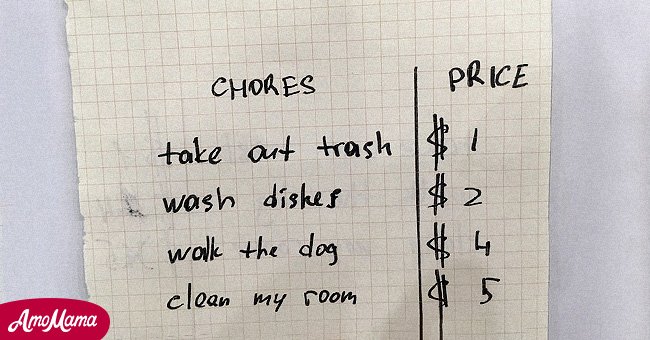
Lista de preços para tarefas | Fonte: AmoMedia.com
“Meu escravo?”, engasgou sua mãe. “Como ajudar pode fazer de você meu escravo?”
“Você não me paga, não é?”, perguntou Wesley triunfantemente. “Trabalhar sem pagamento é escravidão!”
O pai de Wesley franziu a testa. “Nós apoiamos você, filho”, ele ressaltou. “Nós te abrigamos, te alimentamos, te vestimos e te educamos…”
“Esse é seu dever e meu direito!” disse Wesley. “E a lei diz que você tem que fazer isso também, mas eu não tenho que fazer nada!”
A mãe de Wesley mudou de cor. “Entendo! Então nós temos deveres e você tem direitos? É nisso que você acredita? E quanto ao seu dever de ajudar, de fazer suas tarefas?”
“Eu não sou seu escravo”, repetiu Wesley arrogantemente. “Se você quer que eu faça coisas por aqui, é melhor me pagar!”
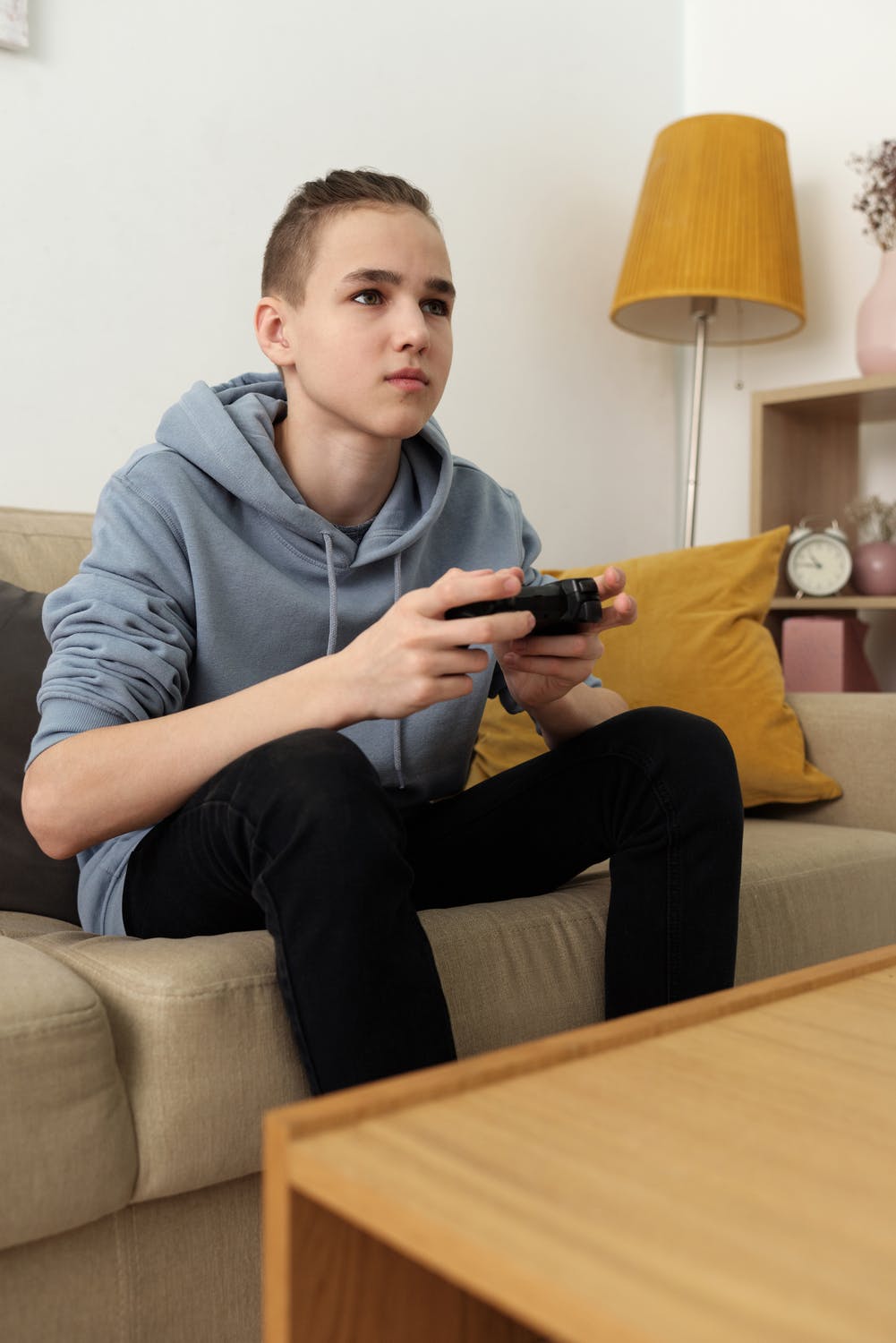
Uma adolescente rebelde | Fonte: Pexels
A mãe de Wesley pulou, mas seu pai colocou uma mão gentilmente contidora em seu braço. “Pagar você?” perguntou o pai calmamente. “E quanto você quer para fazer suas tarefas?”
Wesley sorriu triunfantemente. “Eu pensei sobre isso. Por tirar o lixo, $1, por lavar louça, $2, passear com o cachorro, $4, limpar meu quarto, $5, e por limpar o quintal e cortar a grama, $10. E você tem sorte que eu não estou exigindo pagamento atrasado.”
“Nunca!” gritou a mãe de Wesley com raiva, mas seu pai sorriu calmamente.
“Eu concordo, Wesley. Nós pagaremos pelo seu trabalho de acordo com suas demandas. De agora em diante você é um homem, e nós o trataremos como tal.”
Wesley estufou o peito. “Já era hora de você me mostrar algum respeito!”, ele gritou, e sua mãe abriu a boca para proferir uma resposta raivosa. Mais uma vez o pai de Wesley sorriu docemente e a conteve.

Mãe zangada | Fonte: Unsplash
“Bem, filho, começamos amanhã, ok? Vou colocar um quadro com suas tarefas, e você escreve o que fez diariamente. No final de cada semana, digamos sexta-feira à tarde, você é pago. O que você acha?”
Wesley sorriu feliz. “Isso é simplesmente perfeito, pai!” Wesley saiu se sentindo no topo do mundo, sem perceber que estava prestes a ter uma das piores semanas de sua vida.
Uma família trabalha como uma unidade para melhorar sua vida coletiva.
A mãe de Wesley virou-se para o pai dele. “Rick, como você pôde? Ele é desrespeitoso, preguiçoso e ganancioso. Ele precisa aprender…”
Rick estava sorrindo, e não era um sorriso bonito. “Não se preocupe, Martha, eu tenho um plano, e nosso querido garotinho vai passar por uma experiência muito desagradável. Vamos lhe dar uma lição!”
No dia seguinte, Wesley entrou em casa depois do treino de futebol. Tinha sido um longo dia na escola e ele estava morrendo de fome. “Ei, mãe!”, ele disse. “O que tem para o jantar?”
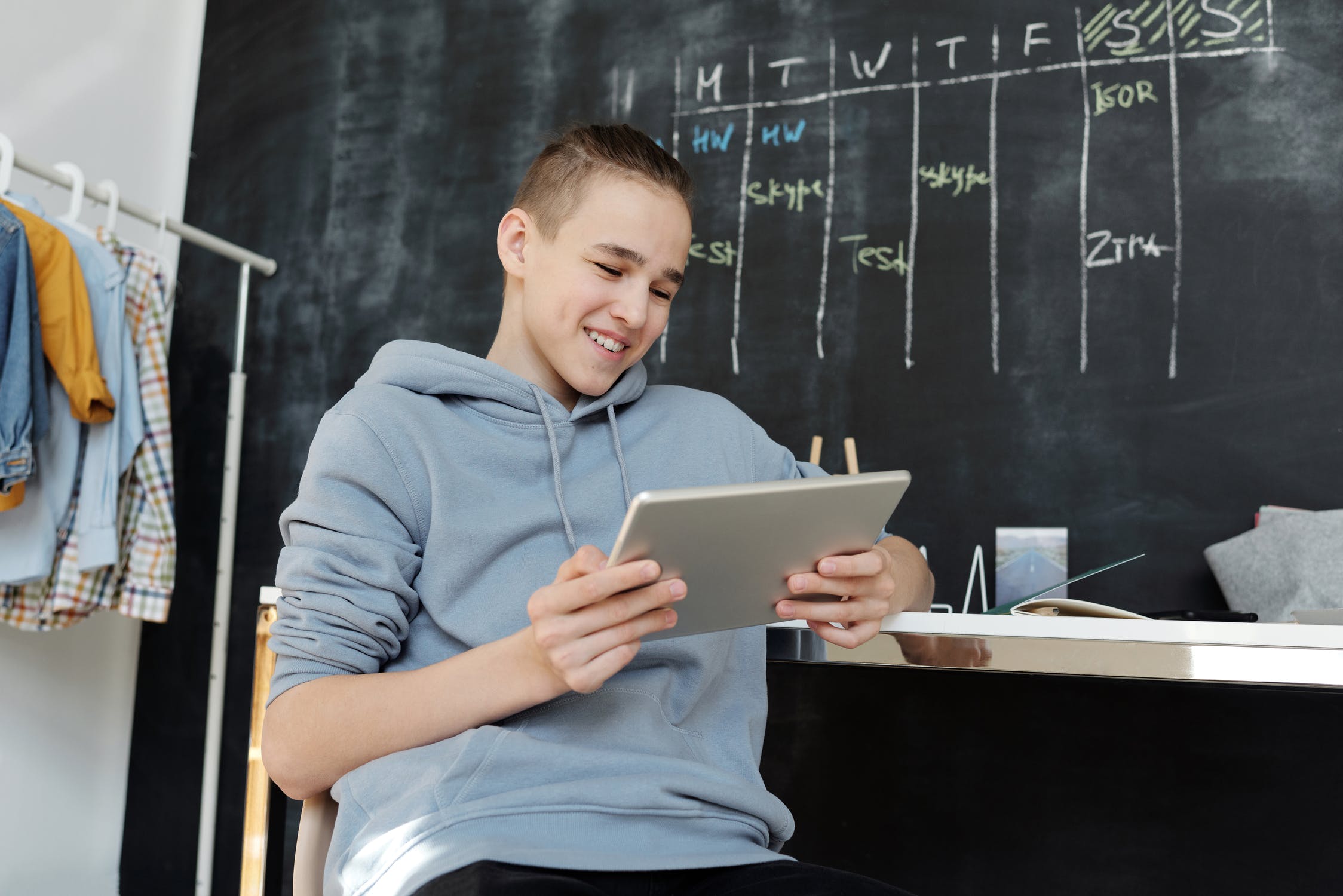
Fazendo uma lista de preços para suas tarefas | Fonte: Pexels
“Torta de peru com batata-doce e ervilhas”, disse sua mãe sorrindo docemente.
“Legal!” gritou Wesley. “Estou morrendo de fome!” Ele viu que seu pai tinha pendurado um quadro na parede e imediatamente foi até lá e começou a passear com o cachorro e a limpar seu quarto. Mais tarde, ele levaria o lixo para fora.
Já são $9, embora Wesley esteja feliz. Vou ficar rico! Uma hora depois, o cheiro da comida o atraiu para a cozinha novamente, onde encontrou sua mãe e seu pai jantando.
“Mãe!” ele gritou indignado. “Você não me ligou e eu disse que estava morrendo de fome!”
A mãe de Wesley sorriu, e seu pai respondeu: “Mas Wesley, agora que você está ganhando seu próprio dinheiro, você terá que se sustentar. Se você quer que sua mãe cozinhe para você, você terá que pagar a ela.”
“PAGAR A ELA?” gritou Wesley, “Eu não vou pagar a ela!”
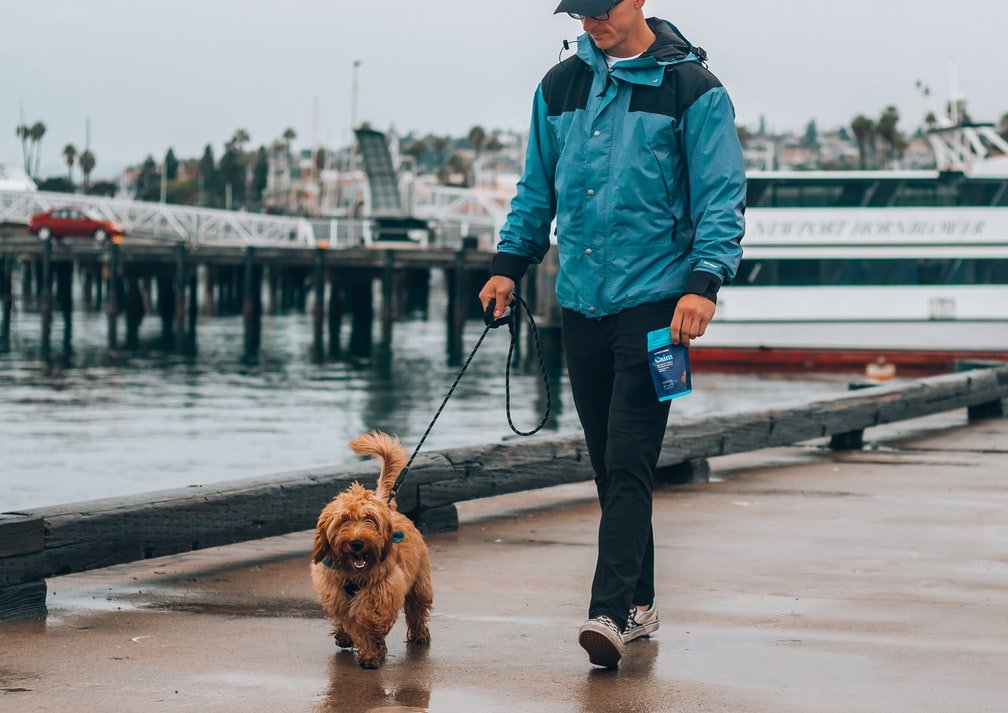
Passeando com o cachorro | Fonte: Unsplash
“Bem, receio que você terá que usar suas economias e pedir comida para viagem, então.” A mãe de Wesley disse ainda sorrindo.
“Mas… mas… Isso não é justo!” gritou Wesley e subiu as escadas. Ele pediu uma pizza e custou US$ 15 mais a taxa de entrega e a gorjeta. Wesley calculou que teria que trabalhar três dias inteiros para pagar por aquela pizza. Ser um homem independente era caro!
Na manhã seguinte, ele desceu para tomar café da manhã e encontrou sua mãe fazendo bacon e ovos, e o cheiro estava delicioso. “Oi, mãe”, ele disse docemente, “posso comer meus ovos fritos?”
“Claro, filho!” ela sorriu. “Serão $6 para o café da manhã!”
“Você está me cobrando pelo café da manhã?” gritou Wesley com raiva. “Isso não é justo!”
Mas Wesley teve outra surpresa. “Papai”, disse Wesley, “nosso treinador disse que precisamos de novas camisas para o time e que custará US$ 69,99”.
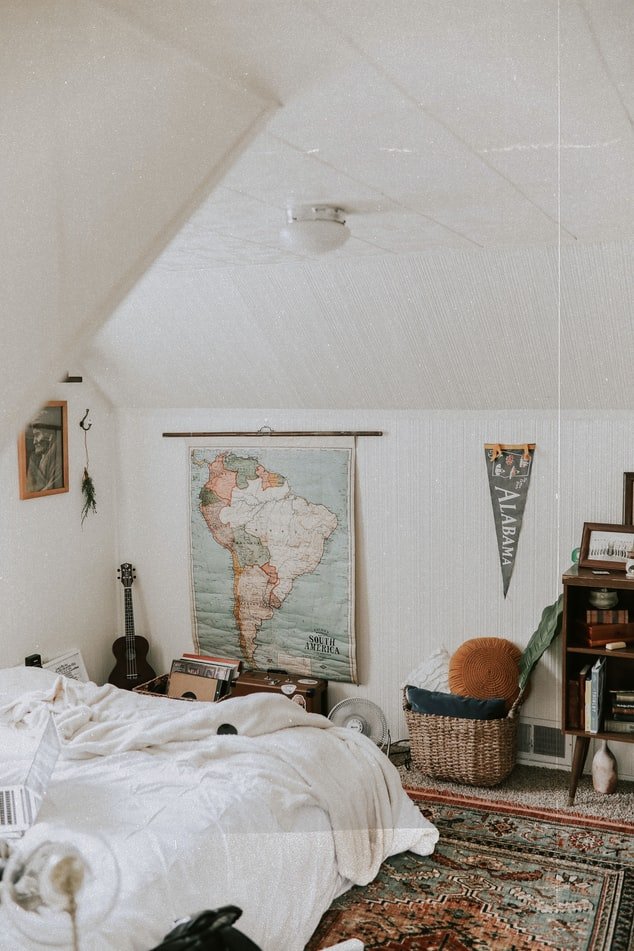
Limpando seu quarto | Fonte: Unsplash
“Entendo”, disse seu pai sorrindo. “Mas por que você está me contando isso?”
“Bem, então você pode me dar o dinheiro!” disse Wesley.
“Mas, Wesley”, disse seu pai, ainda sorrindo, “agora que você está ganhando dinheiro, você paga suas próprias despesas, e isso inclui roupas. Achei que você soubesse disso.”
“Eu não tenho esse dinheiro!” gritou Wesley. “Onde eu vou conseguir $70?”
“Economize do que você ganha, é claro. É o que fazemos!” disse o pai.
Wesley ficou atordoado. Ele não só teria que se alimentar, mas também teria que comprar suas próprias roupas? Não era isso que ele tinha imaginado quando exigiu pagamento por suas tarefas. “Bem, OK”, ele disse. “Escuta, pai, você pode me dar uma carona para a escola? Estou um pouco atrasado…”
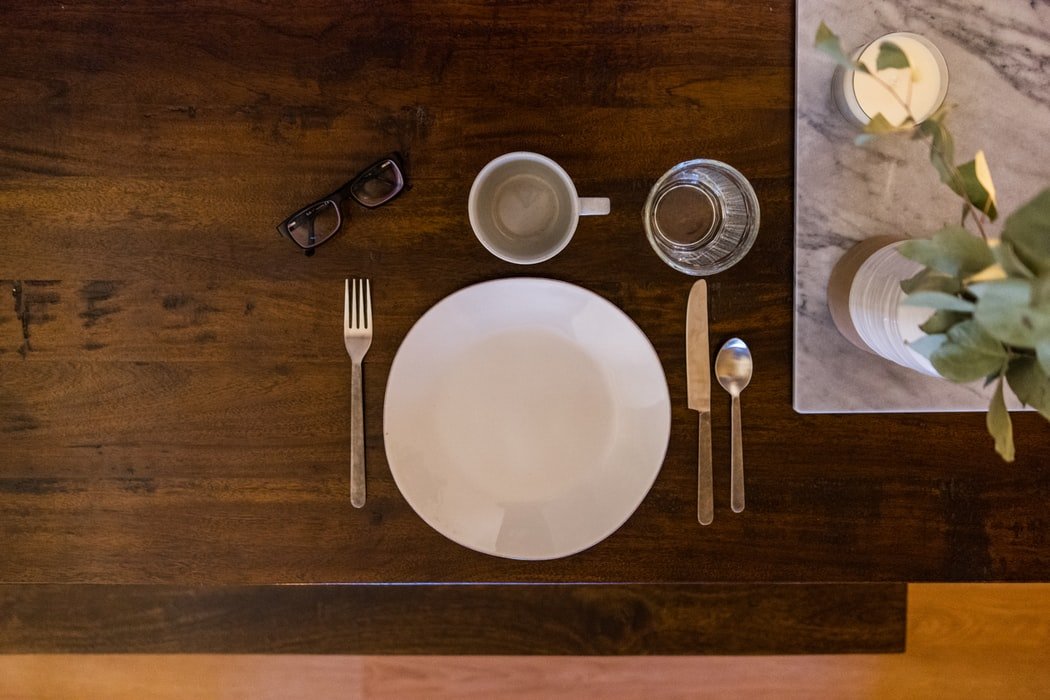
Nada para o jantar | Fonte: Unsplash
“Claro, filho!”, seu pai sorriu. “Serão $ 5,50.”
“Você vai me cobrar para ir à escola?” Wesley engasgou.
“Claro, afinal, você pagaria um táxi, não é?”, seu pai ressaltou razoavelmente.
“Mas você é meu PAI!” gritou Wesley. “E você está me cobrando?”
“Oh Wesley, querido”, disse sua mãe docemente. “Isso me lembra! Serão $12,50 para lavar e passar suas roupas.”
Wesley andou até a escola e estava atrasado. Na hora do almoço, ele comeu a comida da cafeteria com grande gosto. Ele se perguntou quando provaria o bolo de carne de sua mãe novamente, ou seu macarrão com queijo, ou seu incrível ensopado irlandês…
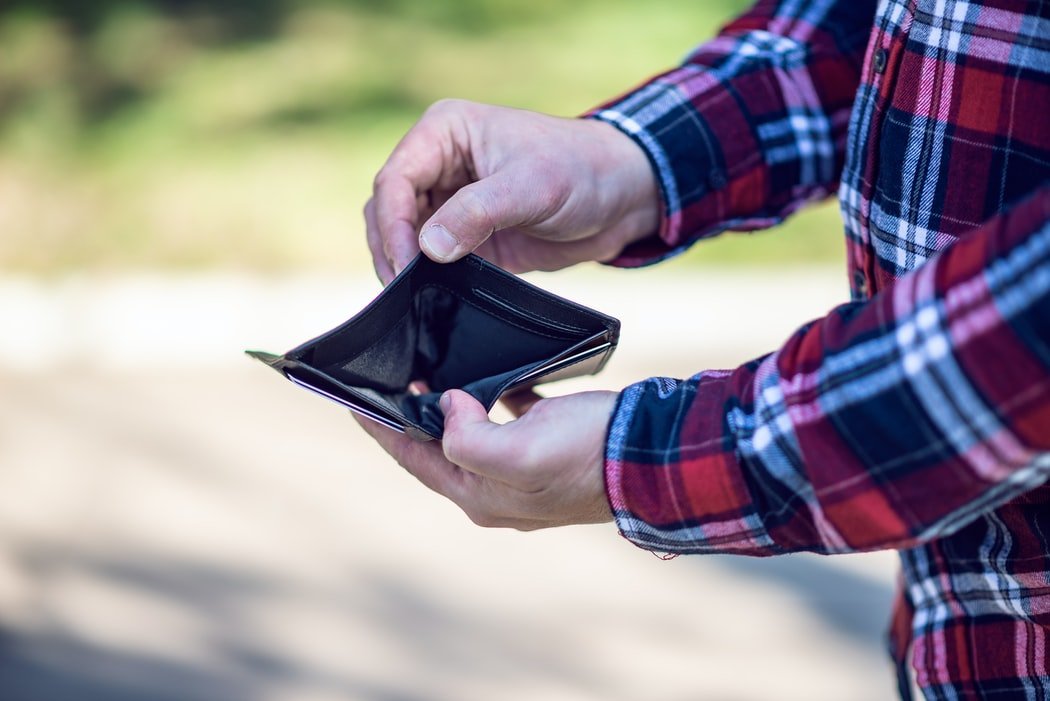
Menino fica sem dinheiro | Fonte: Unsplash
Naquela noite, Wesley desceu na hora do jantar parecendo desanimado. Seus pais estavam jantando e o cheiro era delicioso. O estômago de Wesley roncou. “Mãe, pai?”, ele disse calmamente. “Podemos conversar?”
“Claro, filho”, disse seu pai. “O que está em sua mente?”
“Eu só queria dizer que sinto muito por essa coisa do pagamento. Acho que nunca pensei em tudo o que vocês dois fazem por mim todos os dias, e vocês nunca pedem nada em troca.”
“Esperávamos que você percebesse isso, Wesley. Tudo o que fazemos por você, fazemos por amor, não por obrigação ou dever”, disse sua mãe.
“Eu sei, mãe, sinto muito”, Wesley sussurrou, e seus olhos se encheram de lágrimas.
O pai de Wesley se levantou e colocou os braços ao redor dele. “Filho, nesta família fazemos tudo o que podemos para ajudar uns aos outros, para tornar todas as nossas vidas mais fáceis e melhores. É disso que se trata ser uma família, e esperávamos que você entendesse isso.”
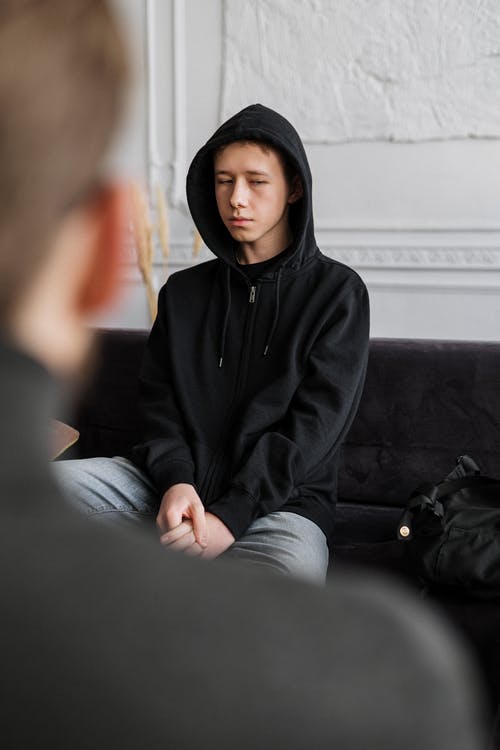
Menino pede desculpas aos pais | Fonte: Pexels
A mãe de Wesley também o abraçou e disse: “Então, que tal um jantar? Fiz torta de carne moída e feijão verde, seu prato favorito!”
Naquela noite, Wesley teve uma das noites mais agradáveis com seus pais e aprendeu uma das lições mais importantes: valorizar tudo o que seus pais fazem por ele e fazer a sua parte para ajudar sua família.
O que podemos aprender com essa história?
1. O amor não exige pagamento.
2. Uma família trabalha como uma unidade para tornar sua vida coletiva melhor.
Compartilhe esta história com seus amigos. Ela pode inspirar as pessoas a compartilhar suas próprias histórias ou ajudar outra pessoa.
Se você gostou desta história, talvez goste desta sobre uma garota rica e mimada que deixa de pagar a conta do restaurante e aprende uma lição dolorosa.
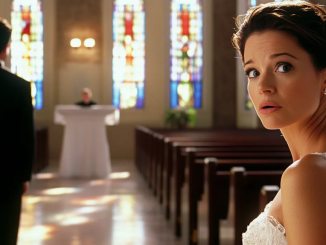
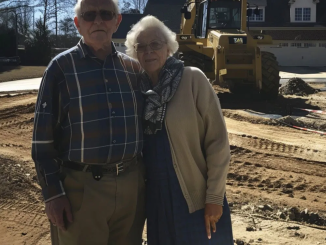
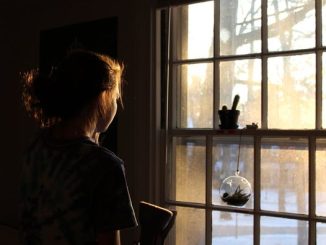
Leave a Reply